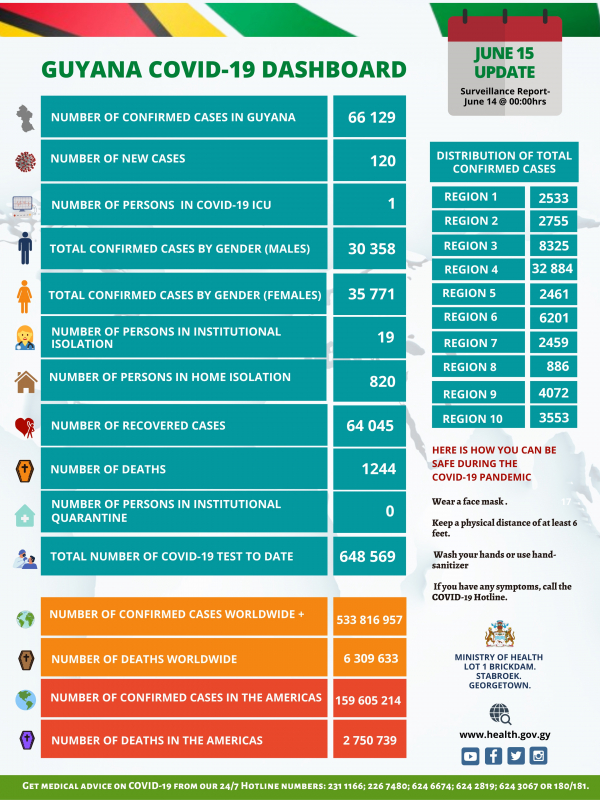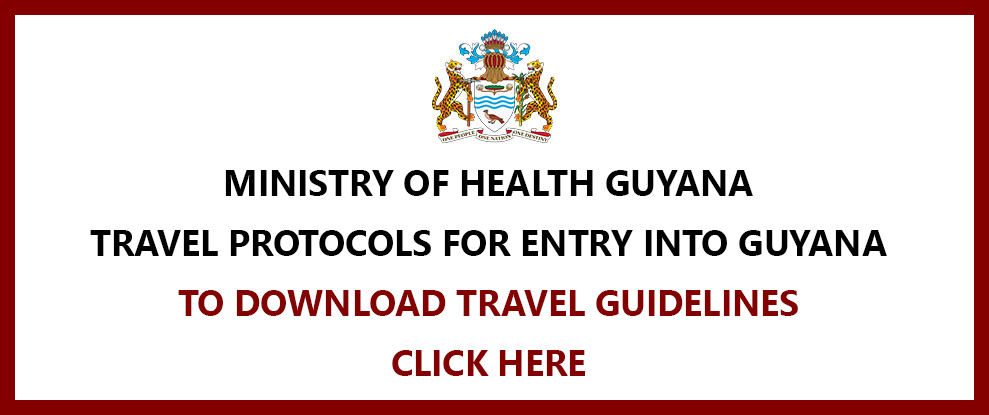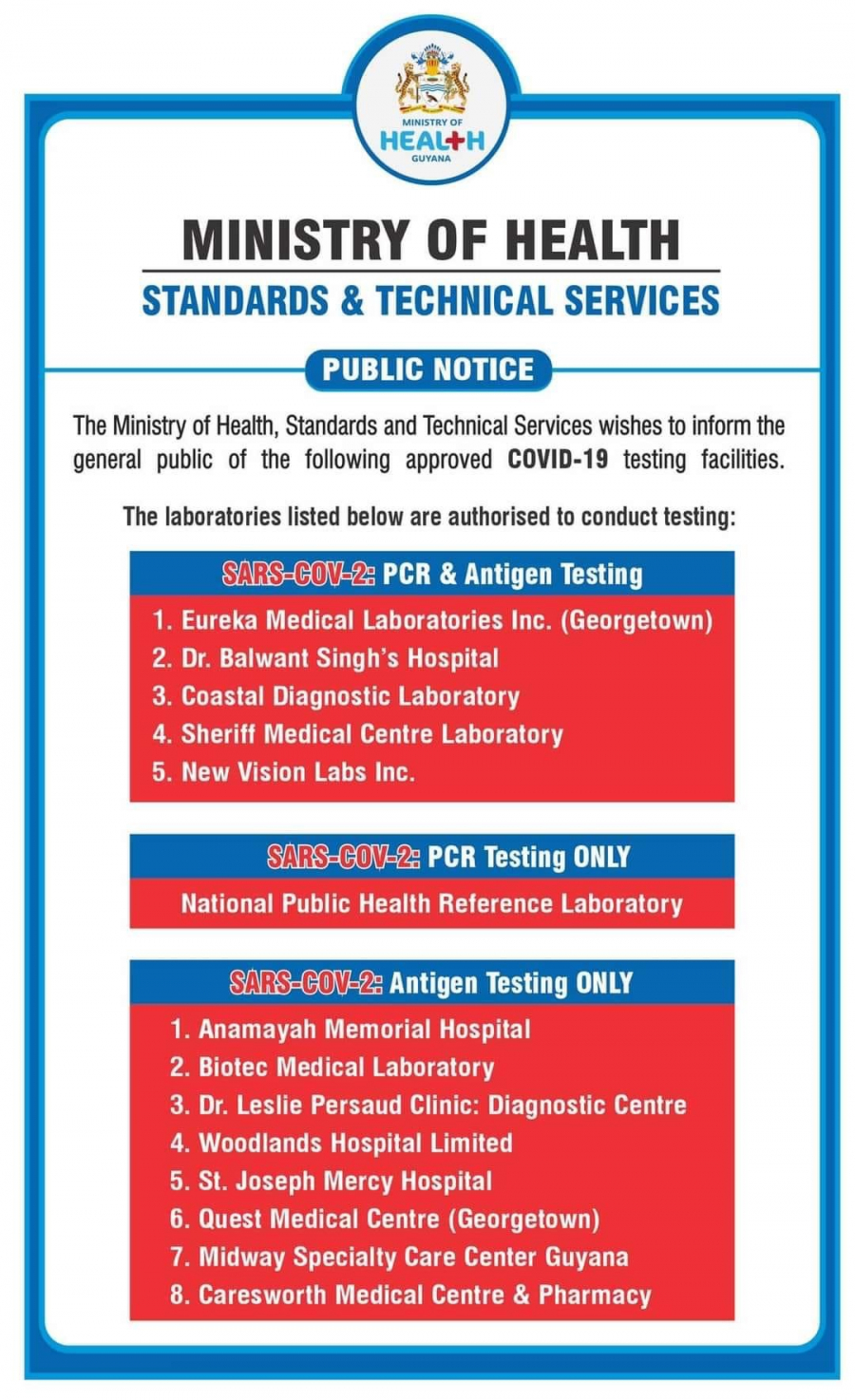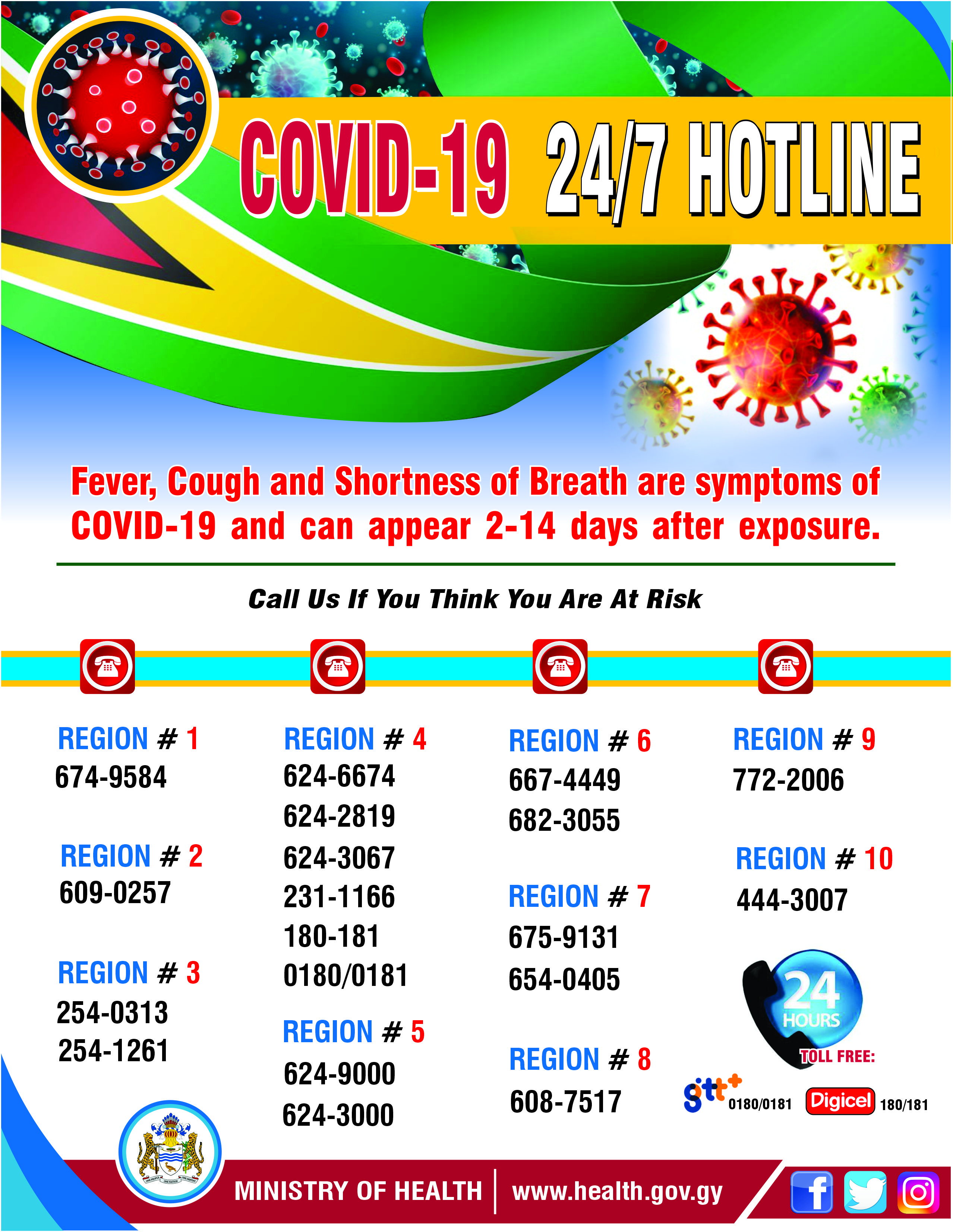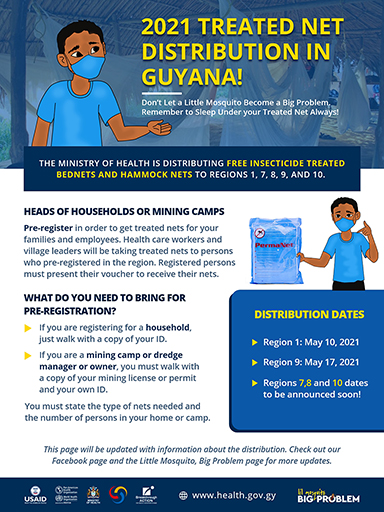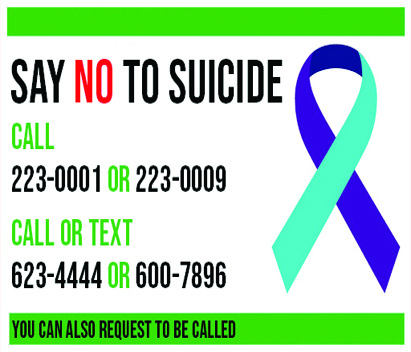- Details
- Written by Super User
- Category: Chronic Non Communicable Diseases
- Published: 19 July 2016
- Hits: 5547
Coordinator: Dr Kavita Singh
Telephone Number: 223-7355
Email Address: This email address is being protected from spambots. You need JavaScript enabled to view it.
Address: Lot 1 Brickdam, Stabroek, Georgetown
- Details
- Written by Super User
- Category: Chronic Non Communicable Diseases
- Published: 19 July 2016
- Hits: 14717
Goals and Objectives
- Risk Factor Reduction, Health Promotion and Disease Prevention: to promote social and economic conditions that addresses the determinants of chronic diseases and empowers people to adopt healthy behaviors. Health promotion is a fundamental part of an integrated approach for chronic diseases.
- Integrated Disease Management and Patient Self-Management Education:a coherent approach to system improvement, development and adherence to guidelines, self-management support for people with chronic diseases, improved clinical information systems and appropriate skill mix and improved technical competency of the health workforce, including cultural competence and sensitivity.
- Surveillance, Monitoring and Evaluation:Chronic Diseases surveillance includes the ongoing, systematic collection, review and analysis of data. This data is in turn translated into useful information before timely dissemination to key stakeholders to facilitate its use for planning and programme modifications. Surveillance also serves to collect information on the knowledge, attitudes and behaviors of the public with respect to practices that prevent these illnesses, facilitate screening and guide the activities about Information, Education and communication in order to improve quality of life.
- Public Policy, Advocacy and Communication: to ensure and promote the development and implementation of effective, integrated, sustainable, and evidence-based public policies on chronic diseases, their risk factors and determinants
- Programme Management: Partnerships and coordination with other government ministries, health financing and pharmaceuticals and equipment.
- Details
- Written by Super User
- Category: Chronic Non Communicable Diseases
- Published: 19 July 2016
- Hits: 4130
Key Responsibilities
- Promote, guide, and facilitate the development, implementation, monitoring, and evaluation of policies, strategies, plans, programs, guidelines, and protocols related to the prevention and control of priority NCDs, their risk factors, and violence and injuries, guided by relevant national, sub-regional, regional, and global frameworks.
- Lead the multi-sectoral response and convene other governments and civil stakeholders on NCDs.
- Collaborate with other ministries; bilateral partners and partners in the UN and other international agencies; technical advisors in the PAHO/WHO Guyana and at other levels of the Organization as necessary, non-governmental organizations, civil society organizations, academic institutions, and the private sector, with particular emphasis on approaches incorporating the social determinants of health and cross cutting themes such as human rights, gender and equity.
- Collaborate with entities as necessary in the establishment/strengthening of surveillance for NCDs, their risk factors, and violence and injuries.
- Collaborate with others ministries and stakeholders as necessary to strengthen the integration of prevention and control strategies for NCDs, and violence and injuries into primary health care, and the use of the Chronic Care Model.
- Undertake resource mobilization efforts to support the delivery of programmes related to NCDs, their risk factors, and violence and injuries and contribute to the development, implementation, monitoring, and evaluation of national projects that impact the prevention and control of these conditions.
- Collaborate with the Health Promotion (HP) focal point, the Knowledge Management and Communication (KMC) focal point, and others as necessary in the development, implementation, monitoring, and evaluation of health communication policies, strategies, plans, and programs to reduce NCD risk factors, mental disorders, and violence and injuries, and enhance protective factors in the places where people live, work, and study (schools, communities, municipalities, and workplaces).
- Collaborate with other national counterparts, partners, and PAHO/WHO country office personnel in the planning, implementation, and evaluation of activities for relevant global health observances.
- Contribute to and support partnerships with UN agencies as requested.
- Contribute to and support the development and implementation of mechanisms for identifying, promoting, and sharing good practices, challenges encountered, and lessons learned in the implementation of the NCDs programme.
- Undertake other work-related duties as requested by the Chief Medical Officer.
- Details
- Written by Super User
- Category: Chronic Non Communicable Diseases
- Published: 19 July 2016
- Hits: 4904
Key Achievements
- NCD Plan 2013-2020 launched on 2nd December, 2013
- NCD Budget: Government commitment to provide funding. Tangible support from international donors and private sector.
- NCD Summit convened and Summit conducted in 2014.
- Multi-sectoral NCD Commission launched in 2014
- FCTC ratified : Acceded, signatory in 2005
- Smoke Free indoor public places
- Multi-sector Food & Nutrition plan implemented
- Ongoing mass Physical Activity Campaigns
- Global Youth Tobacco Survey was conducted in 2015
- Technical working group on Cancers established
- Global School Health Survey conducted
- Details
- Written by Super User
- Category: Chronic Non Communicable Diseases
- Published: 19 July 2016
- Hits: 28677
Mission
To address the top four causes of premature death in Guyana: cardiovascular diseases, cancer, diabetes and chronic respiratory diseases, ensuring a multi-sectoral, integrated approach is maintained.
Page 1 of 2

